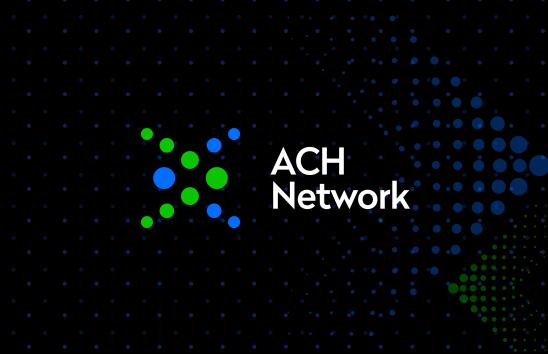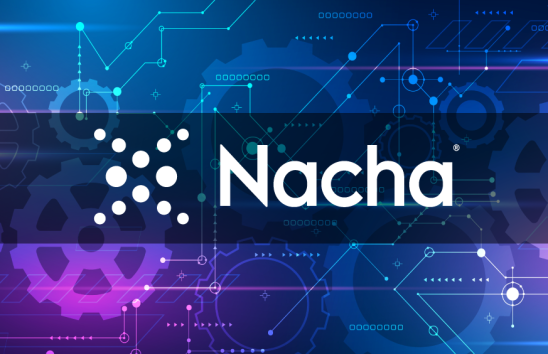Volunteer Opportunities

Volunteer for Nacha. We rely on the payments community to foster innovation and influence the future of the payments industry. Through the Board of Directors and various committees encompassing the development and enforcement of rules, accreditation programs, advocacy, events and leadership, Nacha volunteers are demonstrating commitment to the ACH Network and the entire payments ecosystem.
Board of Directors
Role and Operation:
The Nacha Board of Directors provides strategic guidance related to the modern ACH Network and the governance of Nacha as an industry association. Nacha Board members are asked to think strategically – beyond ACH and within the context of the whole payments marketplace – to best position the ACH Network as an asset for members and for those who utilize the Network. Individuals serving or nominated to serve on the Nacha Board of Directors, and their employers, shall demonstrate the highest levels of integrity and professional conduct as befits a Nacha Director.
Composition:
The Nacha Board consists of nineteen voting Directors who are nominated and elected by the membership, all of whom are senior executives employed by depository financial institutions or Payments Associations.
- Of these nineteen Director seats, ten are held by Payments Association representatives, six are held by Direct Financial Institution Member representatives, and three are held by Payments Innovation Alliance representatives. The President and CEO of Nacha serves as an ex officio (non‐voting) member of the Board.
- At all times, a minimum of one Payments Association seat must be held by an employee of a natural person credit union, and a minimum of one Payments Association seat must be held by an employee of a community bank.
Participant Expectations:
The Nacha Board meets three times per year in person: March, June, and November (exact dates and months may vary from year to year). The meetings generally are 1 to 1½ days in duration.
Newly elected Directors are required to attend a new Board member orientation held in conjunction with the first in‐person meeting each year. In addition, there is one scheduled virtual Board meeting in August/Septemeber. Additional virtual or conference call Board meetings may be scheduled on an as‐needed basis.
Every other year, the Board of Directors meets virtually within the first ten business days of that year to elect Officers.
Term:
Directors are elected to three‐year terms, with tenure limited to nine consecutive years. Director terms are staggered such that approximately one‐third of the Board seats are subject to nomination and election annually, distributed across seat types.
Rules and Operations Committee
Role and Operation:
The Rules & Operations Committee provides oversight to the Nacha rulemaking process. Through rulemaking, Nacha evaluates rule amendments and opt-in programs. The Rules & Operations Committee:
- Provides oversight to the Rulemaking Process.
- Assesses potential new ACH applications and services.
- Reviews Requests for Information and Requests for Comment.
- Reviews and approves ACH opt-in programs.
- Reviews and approves distributing ballots to the Nacha Voting Membership.
Composition:
Voting members of the Rules & Operations Committee are from Nacha’s Direct Members, community banks, credit unions and representatives of the ACH Network end-user or service provider community from the Nacha Payments Innovation Alliance membership. In addition, there are non-voting liaisons to the committee from the Federal Reserve Board of Governors, the U.S. Department of Treasury, and each ACH Operator.
Participant Expectations:
Rules & Operations Committee members will participate in monthly conference calls and annual in-person meetings. Because of the important nature of the work, a high level of participation and engagement is expected.
Term:
The Rules and Operations Committee has a two-year term. The current term started on January 1, 2023, and will end on December 31, 2024. There is a call for nominations each fall prior to the end of a term.
ACH Rules Enforcement Panel
Role and Operation:
The ACH Rules Enforcement Panel falls under the National System of Fines and is the final authority regarding the imposition of fines when the Nacha Operating Rules are violated. Panel members make decisions in accordance with Appendix Ten (Rules Enforcement) of the Rules. Members participate in monthly conference calls.
Composition:
The panel is comprised of a primary and alternate representative from each of the following industry participants:
- The Federal Reserve Bank.
- A private-sector ACH Operator.
- A large asset-size commercial bank or savings institution (greater than $100 billion).
- A medium asset-size commercial bank or savings institution ($5 billion to $100 billion).
- A small asset-size commercial bank or savings institution (less than $5 billion).
- A credit union.
- A Payments Association.
Alternate representatives participate when the primary member is unavailable or when a conflict of interest exists. Nacha staff reviews the submitted nominations and works to achieve geographical balance among the Panel members seated on the Panel. The Nacha Board of Directors approves appointments to the ACH Rules Enforcement Panel.
Participant Expectations:
Due to the nature of the work, the ACH Rules Enforcement Panel requires a high level of participation. Five of the seven panel members or alternates must be present on a conference call to constitute a quorum for the panel to conduct business.
In addition to participation in monthly conference calls, panel members must have a thorough knowledge and understanding of the ACH Network and Rules. Preference will be given to nominees that meet one or more of the following criteria:
- Accredited ACH Professional.
- Minimum of three years ACH payments experience.
- Previous participation on the Rules & Operations Committee, Board of Directors, or an individual serving in an official capacity for a Payments Association.
Term:
ACH Rules Enforcement Panel members serve staggered three-year terms. The term for the new members of the ACH Rules Enforcement Panel started on January 1, 2024 and ends on December 31, 2026. There is a call for nominations each fall prior to the end of the term year so that the panel is fully populated for the start of the new term.
Nacha Arbitration Board
Role and Operation:
The Arbitration Board governs the settlement of disputes arising under the Nacha Operating Rules between Participating DFIs. Depending on the amount of damages, one to three arbitrators are selected to hear an arbitration case. The arbitrator(s) review all the materials presented and decide a case in accordance with the Rules. Members of the Arbitration Board will also serve on the Appeals Panel.
Composition:
The Arbitration Board consists of professionals from banking and banking-related industries. The Arbitration Board is comprised of volunteer members who serve a three-year term. Volunteers for the Board are chosen by the Nacha Board from the volunteer submissions prior to the end of the existing term.
Participant Expectations:
Arbitrators are chosen to hear an arbitration case on a rotational basis. Arbitration Board members must have a thorough knowledge and understanding of the ACH Network and Rules. Preference will be given to nominees that meet the following criteria:
- Accredited ACH Professionals.
- Attorneys with experience in electronic payments processing.
- A minimum of three years of ACH payments experience.
- Previous participation on the Rules & Operations Committee, Board of Directors, or an individual serving in an official capacity for a Payments Association.
Term:
The Arbitration Board has a three-year term. The current term started on January 1, 2024, and ends on December 31, 2026. The call for nominations goes out the fall before the end of the term year (e.g., October 2026) so that the arbitration board is fully populated for the start of the new term. The Board of Directors approves appointments to the Nacha Arbitration Board.
Risk Management Advisory Group
Role & Operation:
The Risk Management Advisory Group serves in an advisory capacity to Nacha's executive management and Board of Directors on risk management related topics to ensure ongoing strength, stability and continued ACH Network quality. The Group works with Nacha staff and key industry stakeholders to produce sound business practices, business cases for rules proposals, Board Policy Statements, tools, white papers and other communications, and collaborates and coordinates with payments professionals across payments channels.
Composition:
The Group is comprised of representatives from financial institutions, Payments Associations and ACH Operators. The Group includes 15 to 20 participants, including the Chairperson. The chair of Nacha’s Board of Directors appoints the Risk Management Advisory Group chair, who then selects members from the nominations received.
Participant Expectations:
Group members are expected to participate in monthly conference calls, attend two in-person meetings per year, and participate in at least one work group and/or related efforts. A participant who misses three calls or meetings will have their participation reevaluated.
Term:
The Risk Management Advisory Group has a two-year term. The current term started on January 1, 2024 and ends on December 31, 2025. There is a call for nominations each fall prior to the end of a term.
Government Relations Advisory Group
Role & Operation:
Nacha’s Government Relations Advisory Group (“GRAG”) supports Nacha’s government relations program – the objective of which is to promote use of the ACH Network and protect the interests of Network participants. GRAG members:
- Review Nacha’s overall public policy development.
- Advise on policy priorities.
- Interact with payments policy people at the federal level.
GRAG meets by conference call bi-monthly and in person one to two times per year.
Composition:
GRAG consists of appointees representing Direct Financial Institutions, Payments Associations and their member financial institutions, and other stakeholders as Nacha deems appropriate. GRAG operates without a designated chairperson.
Participant Expectations:
GRAG members should be interested in and familiar with the public policy analysis and development process. They should also be capable of translating public policy, proposed or enacted, into practical implications for the ACH Network and the payments system more generally.
Nacha relies on the input of its members, particularly members of GRAG, for assistance in assessing the implications of laws, regulations, and legislation on the ACH Network and developing policy responses and tactics accordingly. GRAG members may be asked to communicate with policymakers directly or otherwise represent Nacha before policymaking bodies and should be comfortable with this role.
GRAG members must also be capable of indirectly representing their respective organizations while directly representing Nacha on policy issues related to the payments system. In this regard, members of GRAG should expect to serve as a liaison between the government relations departments of their respective organizations (if applicable) and Nacha. GRAG members are expected to participate on conference calls when scheduled and to respond on a timely basis to requests for input by GRAG or Nacha staff.
Term:
The Government Relations Advisory Group has a two-year term. The current term started on January 1, 2023, and will end on December 31, 2024. Individuals interested in joining the GRAG can apply at any time and do not need to wait for the end of the existing term.
Accredited ACH Professional (AAP) Blue Ribbon Panel
Role & Operation:
The AAP Blue Ribbon Panel functions as the administrative review board for the AAP Program and maintains responsibility for the following areas of the program:
- Oversight responsibility for executing the strategic direction of the AAP program.
- Review and revision of the AAP Program Policies.
- Development of new test questions.
- Review and revision of existing test questions to ensure accuracy of content and validity of topic area.
- Establishment of test cut score.
- Oversight responsibility for the Accredited ACH Professional Handbook and other AAP publications.
The AAP Blue Ribbon Panel has one annual face-to-face meeting and may hold additional meetings by conference call. Occasionally, a second face-to-face meeting in a given year is necessary.
Composition:
The panel consists of 10 to 12 volunteer members including the chairperson of the AAP Blue Ribbon Panel, ACH Network professionals drawn from the Nacha community, and Nacha staff. The chair of Nacha’s Board of Directors appoints the chair of the AAP Blue Ribbon Panel. Nacha staff selects panel members from the nominations received.
Participant Expectations:
Each member of the AAP Blue Ribbon Panel must have a thorough understanding of the ACH Network and be well-versed in the requirements of the Nacha Operating Rules & Guidelines. AAP Blue Ribbon Panel Members must be AAPs.
Term:
Volunteers serve a two-year term with no term limits.
Accredited Payments Risk Professional (APRP) Oversight Panel
Role & Operation:
The APRP Oversight Panel serves as the administrative review board for the Risk Accreditation Program and maintaining responsibility for the following areas of the program:
- Oversight responsibility for executing the strategic direction of the program
- Review and revision of the APRP Program Policies
- Development of new test question
- Review and revision of existing test questions to ensure accuracy of content and validity of topic area
- Establishment of test cut score
The APRP Oversight Panel has one annual face-to-face meeting and may hold additional meetings by conference call. Occasionally, a second face-to-face meeting in a given year is necessary.
Composition:
The panel consists of 10 to 12 volunteer members including the chairperson of the APRP Oversight Panel, ACH Network professionals drawn from the Nacha community, Nacha staff, and payment risk experts from other industry organizations. The chair of Nacha’s Board of Directors appoints the chair of the APRP Oversight Panel, and Nacha staff selects panel members from the nominations received.
Participant Expectations:
Each member of the APRP Oversight Panel must have a thorough understanding of all payment methods including cards, checks, images, cards, wire and the ACH Network, and be well versed in the requirements of the Nacha Operating Rules & Guidelines, the FFIEC Guidances, other payment network rules and compliance and overall risk management principles.
APRP Oversight Panel participants are not eligible to sit for the APRP exam until two years after their participation on the Panel.
Term:
Members of this group serve a two-year term with no term limits.
Accredited Faster Payments Professional (AFPP) Oversight Panel
Role & Operation:
This group will be tasked with the creation of the Accredited Faster Payments Professional program. In this role the AFPP Oversight Panel will:
- Create the AFPP Policies.
- Create the AFPP Exam Blueprint.
- Create the AFPP Body of Knowledge.
- Develop the Operational Pilot Test.
Additionally, the Panel will serve as the administrative review board for the AFPP Program and will be tasked with maintaining responsibility for the following areas of the program:
- Oversight responsibility for executing the strategic direction of the program.
- Development of new test questions.
- Review and revision of existing test questions to ensure accuracy of content and validity of topic area.
- Establishment of test cut score.
Composition:
The panel consists of up to 22 volunteer members, including the chairperson of the AFPP Oversight Panel, ACH Network professionals drawn from the Nacha community, faster payments experts, members of the U.S. Faster Payments Council and Nacha staff.
Participant Expectations:
Each member of the Panel must have a thorough understanding of all faster payment initiatives including, but not limited to, Same Day ACH, RTP®, instant and real time payments, FedNowSM , card network schemes, ISO 20022 and other standards, cryptocurrency, blockchain, and appropriate regulatory requirements.
Term:
Members of this group serve a two-year term with no term limits.
LMS Editorial Board
Role & Operation:
This group of diverse industry experts is tasked with the oversight and review of education content being produced and added to the LMS, which will help ensure learners are presented with the most well-rounded content available. LMS Editorial Board members:
- Review the content created by instructors for the LMS. Each member will select topic areas of interest/expertise. No one will be expected or required to review every piece of content.
- Will review topics taught, learning outcomes, chapter review questions and test questions, and relevance and accuracy of course material.
- Based on the course outline, recommend the best form for the content to be produced by the instructors (video, podcast, long-form document, etc.).
- Will be provided with a list of all topics that Nacha is looking to create for PaymentsiQ by Nacha (updated periodically), providing the opportunity for Editorial Board members to offer to provide that educational module. PAs will be given preference to create ACH-related and other content. Nacha retains the right to approve content providers.
The LMS Editorial Board is not scheduled to have any in-person meetings but may have a handful of calls throughout the year as necessary.
Composition:
The LMS Editorial Board consists of a minimum of 16 to a maximum of 20 volunteer members drawn from the Nacha membership and Nacha staff.
Participant Expectations:
Each member of the LMS Editorial Board must have a thorough understanding of different payment methods, payments networks rules and compliance, and overall payments industry. An industry certification (AAP, APRP, CTP, NCP, etc.) is preferred but not required.
Term:
Annual




